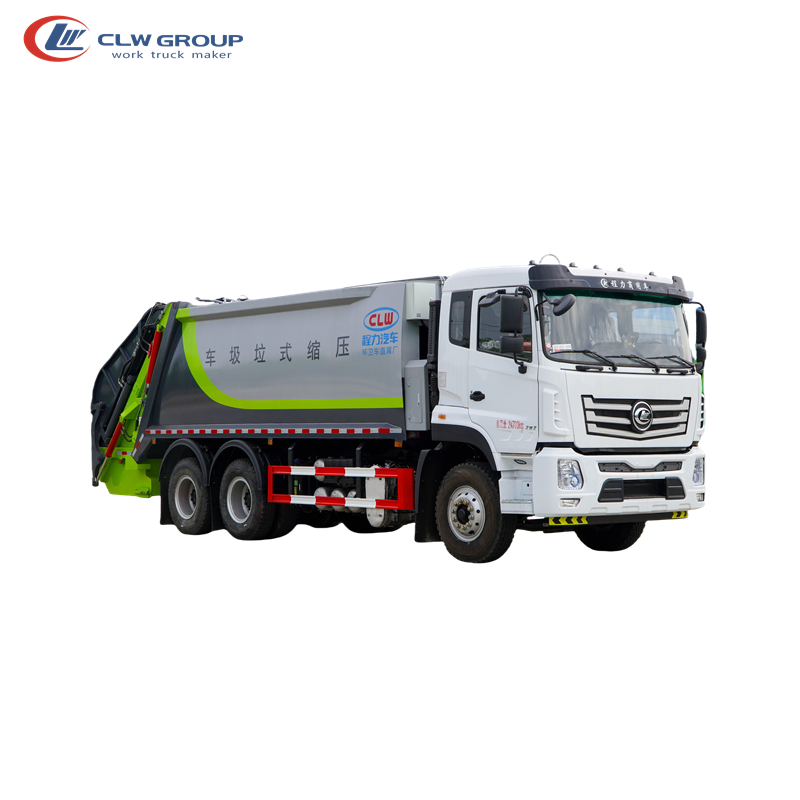The Evolution of Garbage Trucks From Waste Management to Environmental Stewardship
Introduction: Garbage trucks play a crucial role in our modern society, ensuring the proper collection and disposal of waste materials. These vehicles have come a long way in terms of design, functionality, and environmental impact since their inception. In this article, we will explore the evolution of garbage trucks, from their early days as basic refuse collection vehicles to the innovative and eco-friendly models of today. Early History of Garbage Trucks: The concept of garbage collection dates back centuries, with various methods used to dispose of waste materials in urban areas. In the early days, waste management was a rudimentary process, often involving manual labor and horse-drawn carts to collect and transport garbage to disposal sites outside city limits. The first motorized garbage trucks began to appear in the early 20th century, revolutionizing the way waste was handled in urban areas. Types of Garbage Trucks: There are several types of garbage trucks used for waste collection and disposal, each designed to meet specific needs and environmental regulations. The most common types of garbage trucks include rear loader trucks, front loader trucks, side loader trucks, and recycling trucks. Each of these vehicles has unique features and capabilities that make them suitable for different waste collection scenarios. Evolution of Garbage Truck Technology: Over the years, garbage truck technology has advanced significantly, improving efficiency, safety, and environmental impact. Early garbage trucks were simple in design, with basic collection mechanisms and limited capacity. Modern garbage trucks are equipped with advanced features such as automated collection systems, compaction mechanisms, and GPS tracking for route optimization. These technological advancements have not only made waste collection more efficient but also reduced the environmental impact of garbage trucks. Environmental Impact of Garbage Trucks: Garbage trucks are essential for maintaining public health and sanitation, but they also have a significant environmental impact. Traditional garbage trucks run on diesel fuel, which contributes to air pollution and greenhouse gas emissions. In recent years, there has been a growing emphasis on developing eco-friendly garbage trucks that use alternative fuels such as natural gas, electricity, or hydrogen. These green technologies help reduce emissions and mitigate the environmental impact of waste collection operations. Innovations in Garbage Truck Design: In response to increasing environmental concerns, manufacturers have been developing innovative garbage truck designs that prioritize sustainability and efficiency. Hybrid garbage trucks, for example, combine traditional diesel engines with electric motors to reduce fuel consumption and emissions. Electric garbage trucks powered by batteries or fuel cells are also becoming more common, offering zero-emission solutions for waste collection in urban areas. These innovative designs are paving the way for a more sustainable and eco-friendly waste management industry. Challenges and Opportunities: Despite the advancements in garbage truck technology, there are still challenges to overcome in the waste management industry. One of the main challenges is the cost of transitioning to eco-friendly garbage trucks, which can be higher than traditional diesel-powered vehicles. Additionally, the infrastructure for alternative fueling stations and charging facilities needs to be expanded to support the widespread adoption of green garbage trucks. However, boom truck challenges also present opportunities for innovation and collaboration between industry stakeholders, government agencies, and environmental organizations to create a more sustainable waste management system.  Conclusion: Garbage trucks have evolved significantly over the years, from simple collection vehicles to sophisticated machines equipped with advanced technology and eco-friendly features. The continued innovation in garbage truck design and technology is essential for addressing environmental challenges and promoting sustainable waste management practices. By investing in green technologies and embracing alternative fuels, the waste management industry can reduce its environmental impact and contribute to a cleaner and healthier planet for future generations.
Conclusion: Garbage trucks have evolved significantly over the years, from simple collection vehicles to sophisticated machines equipped with advanced technology and eco-friendly features. The continued innovation in garbage truck design and technology is essential for addressing environmental challenges and promoting sustainable waste management practices. By investing in green technologies and embracing alternative fuels, the waste management industry can reduce its environmental impact and contribute to a cleaner and healthier planet for future generations.